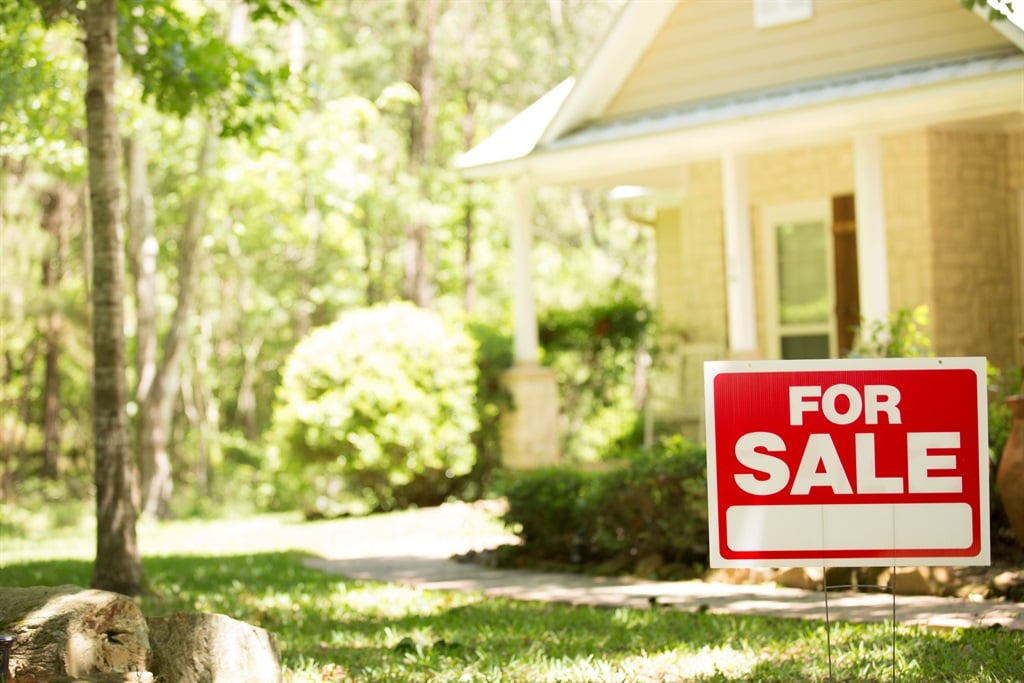
- FNB has seen a 41% growth in its collective-buying home loan option since its inception in August 2021, which refers to people teaming up to buy assets.
- Interestingly, the product is being used by both affordable housing customers as well as more affluent consumers, with the latter using it to buy holiday houses.
- FNB says the majority of the activity is in Gauteng, and the greater KwaZulu-Natal area is seeing a dearth of activity, possibly due to the construction mafia.
- For more financial news, go to the News24 Business front page.
FNB says more of its home loan customers are opting to buy homes collectively as the rising cost of living and the highest interest rates in 14 years force consumers to seek out cheaper options.
The FirstRand-owned lender says its collective-buying mortgage option, which allows up to 12 people to buy a home together, has seen a 41% book growth since its inception in August 2021. The total collective loans disbursed stood at R346 million as of the end of June.
While the product was initially used mainly by more affluent customers to buy holiday houses at the coast or to finance semigration homes in the Western Cape, where properties are more expensive, FNB says 23% of collective-buying loans now comprise affordable housing customers.
"If you think about the interest rate cycle, we're right at the top of it," said Mfundo Mabaso, growth head at FNB Home Finance, adding:
While affluent home buyers account for 77% of FNB's collective-buying book in terms of value, this is partly due to their average loan size being R1.8 million compared to only R850 000 for affordable housing customers.
But with rates at the highest since 2009 and inflation remaining stubbornly sticky, Mabaso says affordable housing customers are now increasingly buying homes through family stokvels to cope with the "perfect storm" facing this housing market segment.
FNB's affordable housing book stood at about R20.5 billion as at end-June 2023, spread out across more than 70 000 low-income households. While that's only a fraction of FNB's total residential mortgage book of R260 billion as at end-June 2023, the bank is increasingly developing new products to help lower-income communities with limited access to collateral to boost their net asset value through home purchases.
This includes the integration of government subsidies into FNB's affordable housing lending process to improve affordability for customers, as well as interest rate hedging mechanisms to smooth out the impact of rate hikes on borrowers. This is meant to solve affordability issues unique to South Africa, where it would take nine people earning R4 000 a month to be able to collectively buy a newly built entry-level home costing R500 000.
Not quite self-sufficient
FNB broadly defines the affordable housing segment as households earning a gross salary of between R3 500 and R29 600 per month, though there is further hyper-segmentation within this customer bracket. A big portion of the segment comprises so-called gap housing, which caters to the missing middle of consumers who don't quite qualify for a home loan but also earn too much to be considered for a state housing subsidy.
"They're not indigent, but they're not quite self-sufficient," Mabaso says of the gap housing market, which comprises customers grossing between R3 500 and R22 000 per month.
Gap housing customers typically rely on the government-backed First Home Finance scheme, which provides them with a grant of between R38 911 for the highest earners in this segment, with the subsidy increasing to R169 265 for the lowest earners. Customers then have to supplement this grant with a mortgage and often have to resort to using their pensions as collateral to access housing finance.
FNB calls its pension-backed lending for mortgage access its "smart housing plan", which totalled roughly R2.2 billion in loans as at end-2022.
At the bottom of the housing market pyramid is what is typically referred to as the indigent market, which consists of customers grossing less than R3 500 per month. This segment is largely catered to through subsidised housing provided by government's RDP [Reconstruction and Development Programme] or BNG [Breaking New Ground] schemes.
Mabaso says the majority of affordable housing lending activity occurs in South Africa's main commercial hubs of Johannesburg, Pretoria and Cape Town, which he says are seeing "good hustle and bustle" in the affordable housing space, which developers in these metros are taking more seriously.
However, he says FNB has noticed a "peculiar" dearth of activity in the affordable housing market in Durban and even greater KwaZulu-Natal (KZN).
Said Mabaso: "We think it has to do with these construction disruptions from nefarious groupings – the so-called construction mafia - that has deterred affordable housing delivery in the KZN area."




 Publications
Publications
 Partners
Partners












